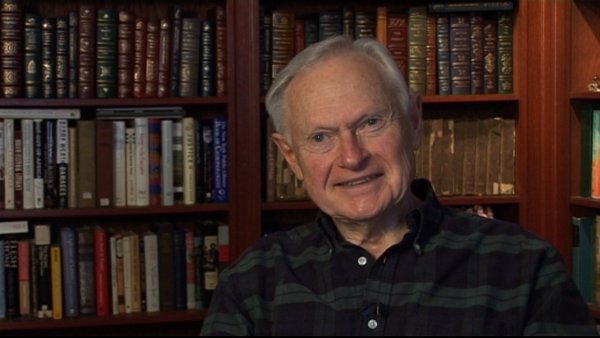NEXT STORY

Ignaz Semmelweis and hand-washing
RELATED STORIES

NEXT STORY

Ignaz Semmelweis and hand-washing
RELATED STORIES


|
Views | Duration | |
|---|---|---|---|
| 21. An original marriage proposal | 1 | 727 | 03:20 |
| 22. A Jew without belief | 1 | 534 | 02:09 |
| 23. Beneficial spirituality | 1 | 442 | 02:36 |
| 24. Human need for a sense of order | 1 | 455 | 04:14 |
| 25. Why people invented religion | 454 | 03:13 | |
| 26. A sense of wonder | 1 | 303 | 02:06 |
| 27. That narcissistic feeling | 1 | 337 | 00:34 |
| 28. Don't think, just write! | 2 | 405 | 02:34 |
| 29. I become a literary editor | 229 | 03:04 | |
| 30. Ignaz Semmelweis and hand-washing | 413 | 01:58 |


So how did I start writing? Well, to me, I've always been a writer. I've been a writer since I wrote about the carnival on the flyleaf of that book about the wonders of the world. I've been a writer through high school. I noticed in my high school yearbook. You know, I look at it about once every 10 years. There's this big, long article about one of the faculty that I wrote, and it really reads very nicely. No worse than I write today. I've been a writer since I was in college and got an A on every theme. I didn't work for the newspaper, I didn't work for other publications that the undergraduates had in college. I didn't do any of that, but after three years in Milford… Sarah and I… it was shortly after we got married, we went to a concert at Yale, at Sprague Hall, one of the concert… the second concert hall, second level concert hall. And by the time we got there, it was standing room only, and everybody… all the students were there. Not all the students, but the place was filled with students, and some faculty. And I looked at these kids. Now, you know, obviously I'd been teaching medical students before I had my depression. And I was teaching medical students all through my training period, and I loved doing that. And I looked around at all these kids, you know, they're 18, 19, 20, 21, and I said to Sarah, 'You know, I miss this so much. I've got to be back here, in New Haven'. So, I left Milford. I quit, and I started a practice in New Haven, which fortunately for me, you know, was pretty good right from the start. And that was in 1977, was when I came back to New Haven. And shortly after I came, the editor of the Connecticut State medical journal - the name of the journal is Connecticut Medicine - asked me if I would write a couple of things, small things for the journal. And I wrote a few articles. And he liked them and he asked me to edit a few things, and then he said, you know, 'One thing this journal needs is a literary editor, someone who'll write an occasional piece and also help me out with the non-scientific stuff'. I said fine. And I became the literary editor of the Connecticut State medical journal, something I enjoyed. You know, I'd do book reviews and articles and things like this.
Sherwin Nuland (1930-2014) was an American surgeon and author who taught bioethics, the history of medicine, and medicine at the Yale University School of Medicine. He wrote the book How We Die which made The New York Times bestseller list and won the National Book Award. He also wrote about his own painful coming of age as a son of immigrants in Lost in America: A Journey with My Father. He used to write for The New Yorker, The New York Times, Time, and the New York Review of Books.
Title: I become a literary editor
Listeners: Christopher Sykes
Christopher Sykes is a London-based television producer and director who has made a number of documentary films for BBC TV, Channel 4 and PBS.
Tags: Milford, Connecticut, Yale University, New Haven, 1977, Connecticut State Medical Journal, Sarah Peterson
Duration: 3 minutes, 4 seconds
Date story recorded: January 2011
Date story went live: 04 November 2011